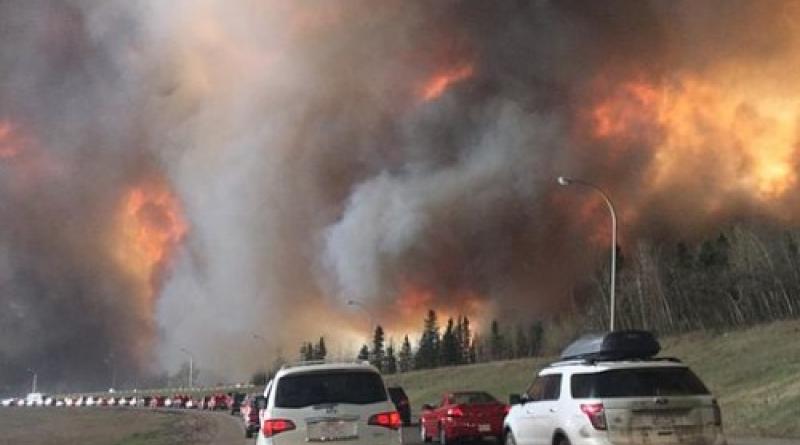Canadians to Pay Trillions for Climate Impacts by 2100, Report Projects

Canada’s economy will lose C$2.8 trillion in climate costs by 2100 if global temperatures rise by 2°C, a figure that doubles to $5.5 trillion should warming increase by the 5°C forecast in “business as usual” scenarios, says a new report.
“Undertaking the required investments to reduce greenhouse gas (GHG) emissions more than pays for itself in terms of avoided physical damage alone,” wrote a research team from the Queen’s University’s Institute for Sustainable Finance (ISF), after calculating the damages from future biodiversity loss, sea level rise, and infrastructure collapse from extreme weather events like flooding and wildfire.
These costs are up to $45.4 billion greater than the investment needed to reduce GHG emissions, and that is without including the potential economic benefits of the transition to a low-carbon economy, reports CTV News.
ISF chair Sean Cleary said the findings “are important guidance for policy-makers who need to consider that economic value is sacrificed every day that we don’t take action to mitigate climate change.”
As for who is paying for the damages, it certainly isn’t the world’s biggest fossil companies. They have been reaping massive profits, finds a Transport & Environment (T&E) study, despite their responsibility for pollution, deteriorating public health, and carbon emissions that bring a huge societal cost of up to €13 trillion (or C$17.6 trillion).
T&E found that Europe’s five most colossal fossils (BP, Eni, Repsol, Shell, and TotalÉnergies) pocketed €47 billion (C$63.5 billion) in profits in 2021, taking their total to €850 billion (C$1.15 trillion) since 1993. They have paid back a mere 5% of this in corporate taxes, “leaving a mountain of unpaid costs at the door of society,” the organization writes.
Breaking down these costs, T&E found European fossils responsible “for an estimated €9 trillion in unpaid health costs from air pollution,” and a further €4.2 trillion in unpaid carbon costs. The “unpaid damage would be far higher when the costs of deforestation, human rights, and Indigenous population destruction are taken into account,” the group states.
“With fuel prices soaring, it’s time for Big Oil to pay back its debt to society,” said T&E climate manager Sofie Defour.
But back across the pond, Chevron—one of America’s top fossils—has other priorities. Celebrating the company’s highest quarterly profits in 10 years, Chief Financial Officer Pierre Breber told Reuters the first order of business “is the dividend”. The second is investing in the business by expanding its natural gas portfolio. Third, is maintaining a balanced strong balance sheet. And then the fourth is returning excess cash to shareholders.
Oil revenue among the oil-exporting nations of the Middle East and Central Asia will reach US$818 billion in 2022, up $320 billion from its October assessment, the International Monetary Fund (IMF) reported, in a release that cautioned countries experiencing the temporary boom to remain wary of the odds of a bust.
Urging a “focus on rebuilding buffers and improving their current and fiscal accounts,” the IMF also advised countries to use the current fossil windfall to diversify their economies away from a dependence on oil.
cover photo : DarrenRD/wikimedia commons





